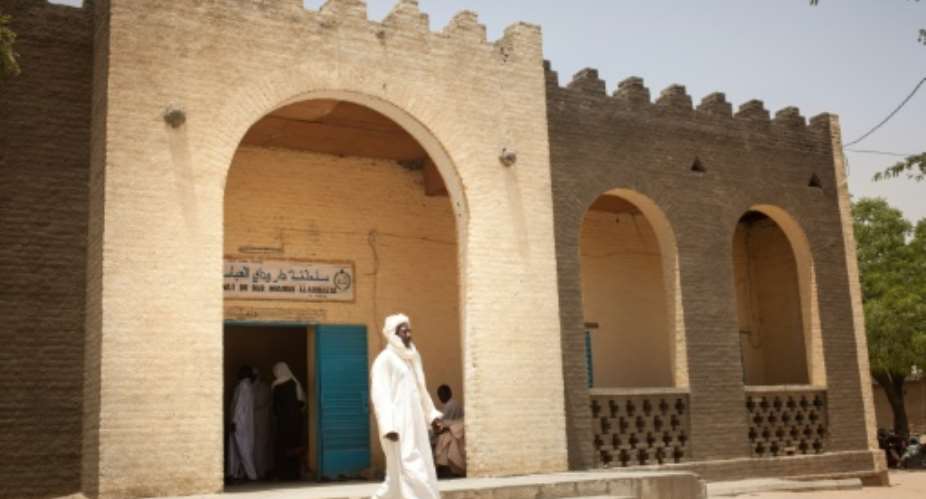Security forces in eastern Chad killed at least 13 demonstrators, including a 12-year-old boy, who were protesting peacefully at a time of ethnic friction in their region, Human Rights Watch (HRW) said on Wednesday.
People in the town of Abeche rallied against a plan to inaugurate an official who comes from the Arab community at a site reputedly reserved for the sultan of the native Ouaddaien community.
On January 24, thousands of protesters were violently dispersed by soldiers, who killed three people and injured at least 40 others, HRW said in a joint statement with the Chadian Convention for the Defence of Human Rights (CTDDH).
The following day, at a funeral for those who had died, "soldiers indiscriminately shot live rounds again, killing an additional 10 people and injuring at least 40 others," they said.
A total of 212 people were arrested and held for up to five days before being released, sometimes enduring beatings and inhumane conditions, they said.
The account is based on interviews with witnesses, two doctors and representatives of civil society groups, as well as videos and photographs, the two groups said.
Their toll compares with an account given by a government official to AFP on January 28, who said 14 people had been killed and 64 wounded.
Communications Minister Abderaman Koulamallah, who was also appointed government spokesman by the military junta which took power 10 months ago, told AFP on Wednesday, "The army didn't fire on anyone."
"The army tried to establish order in a violent demonstration in which civilians used weapons, people were killed and property destroyed. The army reacted proportionately," he said.
He added, however, "an enquiry has been opened to establish responsibility. HRW would do well to wait for the outcome."
 Map of Chad locating Abeche, main city of the Ouaddai province. By Tupac POINTU (AFP)
Map of Chad locating Abeche, main city of the Ouaddai province. By Tupac POINTU (AFP)
A vast landlocked country in north-central Africa, Chad has a history of sporadic ethnic friction.
The Ouaddai is a vast semi-desert region near the border with Sudan that was once the heartland of the Ouaddai Sultanate, an empire that existed for nearly three centuries until it was conquered by France in the early 20th century.
Arabs -- many of them descendants of nomads -- and dark-skinned Ouaddaiens tend to live in separate areas and confrontations are rare.
However, the provincial capital of Abeche, where the historic sites are located, is a potential flashpoint.
The protests in January erupted over inaugural ceremonies that were scheduled to be held for a district chief, Bachar Younous, who hails from the Arab community.
He became head of Abeche district in 2019 but had never had an official ceremony to confirm his appointment.
The first choice for the inauguration -- the site of a historic royal palace -- was discarded after the Ouaddai community complained that it was used by their traditional sultan.
The violence erupted when a second venue -- the city's Independence Square, which opponents said was also used by the sultan -- was announced.





 List of 24 ministerial nominees approved by Parliament
List of 24 ministerial nominees approved by Parliament
 You were my inspiration, made me who I am today – Lilian Kumah
You were my inspiration, made me who I am today – Lilian Kumah
 Rainstorm destroys Hohoe E.P. Senior High School building
Rainstorm destroys Hohoe E.P. Senior High School building
 John Kumah strongly supported me to become NPP flagbearer – Bawumia reveals
John Kumah strongly supported me to become NPP flagbearer – Bawumia reveals
 Late John Kumah urged me to run for NPP flagbearer, strongly supported me — Bawu...
Late John Kumah urged me to run for NPP flagbearer, strongly supported me — Bawu...
 Akufo-Addo appoints Joseph Kpemka as Deputy MD of BOST
Akufo-Addo appoints Joseph Kpemka as Deputy MD of BOST
 Ablakwa petitions CHRAJ to investigate sale of SSNIT's hotels to Rock City Hotel
Ablakwa petitions CHRAJ to investigate sale of SSNIT's hotels to Rock City Hotel
 MoF to provide new bailout for defunct Gold Coast Fund investors – Bawumia revea...
MoF to provide new bailout for defunct Gold Coast Fund investors – Bawumia revea...
 OMCs implement price adjustments despite International petroleum price declines
OMCs implement price adjustments despite International petroleum price declines
 Petition to remove Kissi Agyebeng will disrupt operations of OSP – Martin Kpebu
Petition to remove Kissi Agyebeng will disrupt operations of OSP – Martin Kpebu
